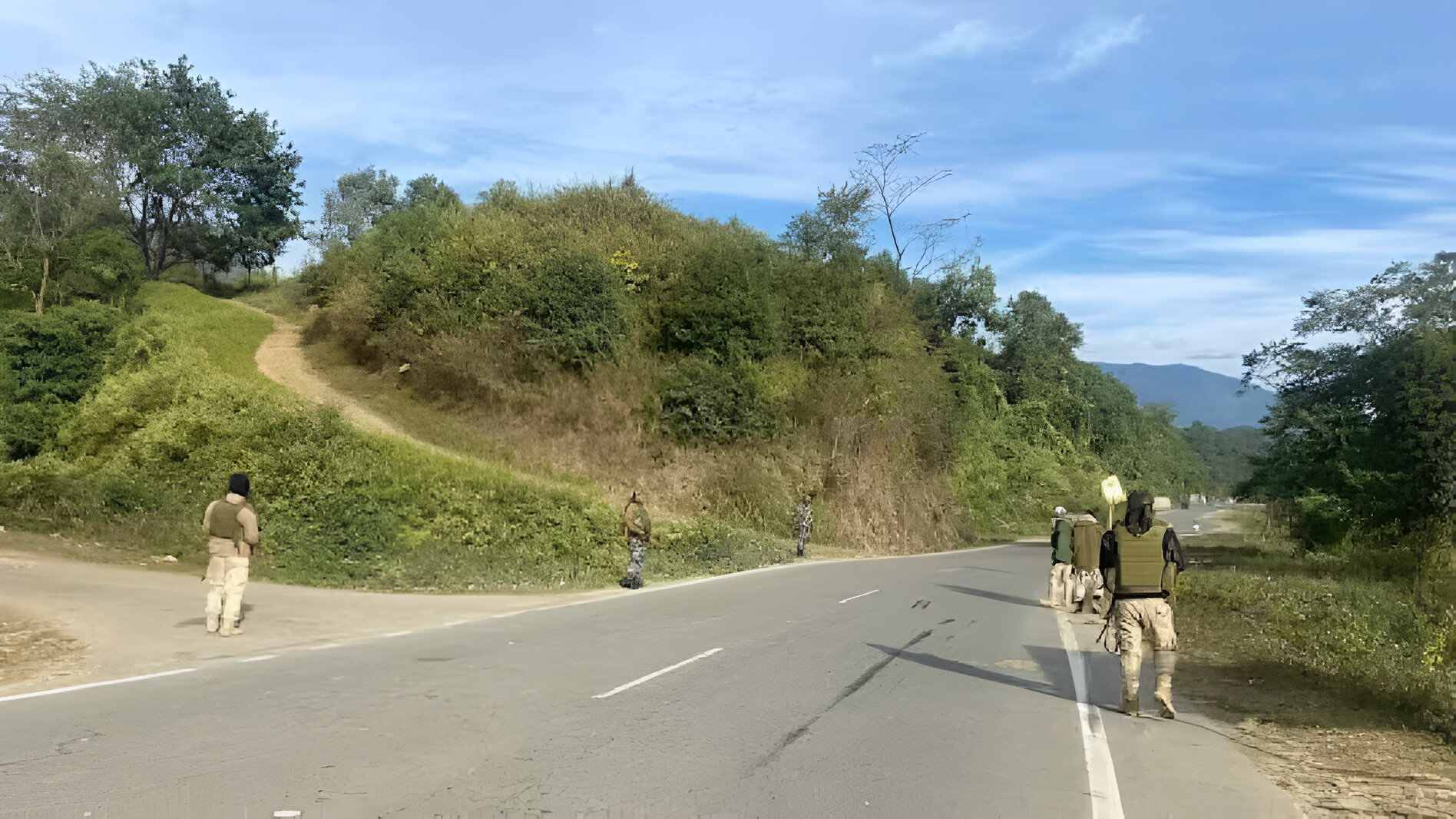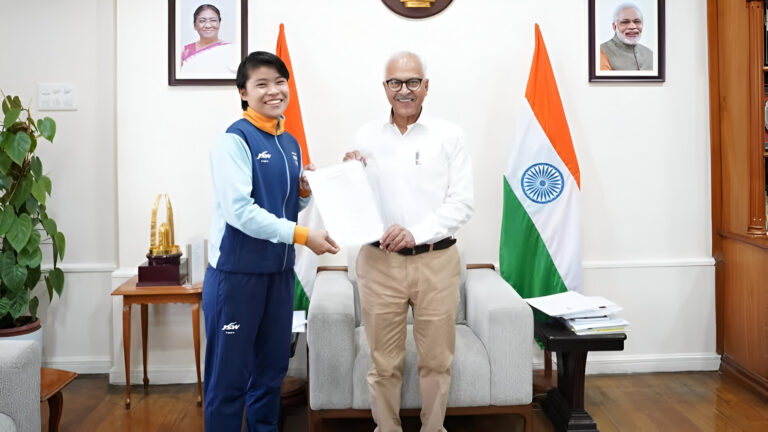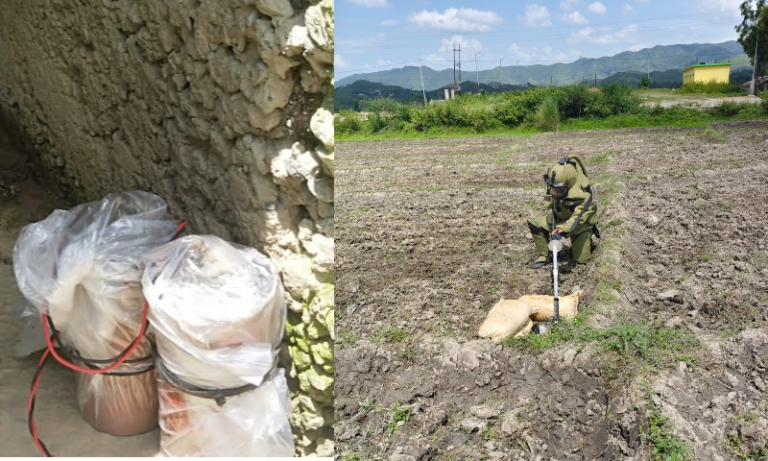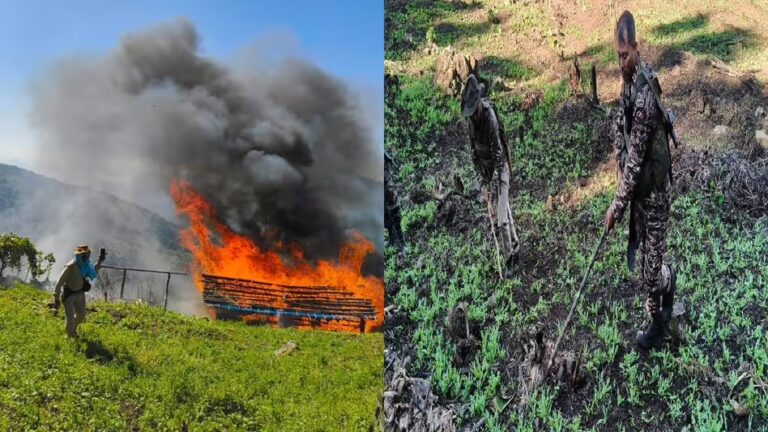Manipur Kuki Village Volunteers Declare No Free Movement in Kuki-Zo Areas Amid Demand for Separate Administration
Summary of the News
In a significant development in Manipur, local village volunteers have declared that free movement will no longer be permitted in the Kuki-Zo areas. This move comes on the heels of growing demands for a separate administration by communities in the region. The decision reflects deep-rooted socio-political tensions and highlights a community’s struggle for identity and self-governance. With sentiments running high, this development not only affects local daily life but also has broader implications for regional security and political stability.
Long Article
Introduction
Imagine living in a place where the simple act of moving freely in your own hometown suddenly becomes a matter of heated debate. That’s exactly what’s unfolding in Manipur—a state known for its diverse ethnic communities and vibrant cultural tapestry. Recently, village volunteers in the Kuki-Zo areas have taken a bold stand by declaring that free movement in their regions will be curtailed. This decision is intertwined with the growing demand for separate administration by the locals, marking a dramatic shift in the socio-political landscape of Manipur.
In today’s article, we’re diving deep into this development. We’ll explore its roots, understand the community’s concerns, and discuss its potential impact on not just Manipur but also the surrounding regions. Whether you’re familiar with the local dynamics or are curious about regional autonomy debates, this piece will guide you through the complex narrative in an engaging, easy-to-understand manner.
Background: The Political and Social Landscape in Manipur
Manipur, a state nestled in the northeastern part of India, is a mosaic of diverse communities, each with its unique traditions, languages, and histories. Over the years, this region has witnessed multiple social and political shifts. Its diverse ethnic groups, including the Kukis and the Zos, have contributed significantly to its rich cultural heritage. However, this diversity has also meant that conflicts of interest sometimes arise, particularly when it comes to issues of governance and regional identity.
Historically, communities in Manipur have sought to balance the benefits of state-wide unity with the need for preserving their distinct cultural identities. Over time, economic pressures, political neglect, and cultural misrecognition have fueled demands for greater self-governance. The recent decision by the village volunteers in the Kuki-Zo areas is a reflection of these underlying currents. It underscores the desire of local communities to assert control over their movements and, by extension, their destiny in a region that has long felt overlooked by mainstream administrative frameworks.
Understanding the Issue of Free Movement
So, why is free movement such a critical issue? At its core, free movement means the ability of people to travel, interact, and engage in economic activities without unnecessary restrictions. It’s something many of us take for granted. In the context of Manipur, the decision to restrict free movement isn’t just about travel logistics—it symbolizes a community’s assertion of identity and the demand for political recognition.
Imagine your neighborhood suddenly setting boundaries that weren’t there before, not because of natural barriers, but because of a decision made by local community leaders. This is not just an administrative measure; it is a profound statement. The villagers are sending a clear message: “We want to control our affairs, and we demand that our unique challenges and aspirations be recognized.” In doing so, they hope to pave the way for a system of governance that is more responsive to their needs.
The Demand for Separate Administration: Roots and Reasons
The push for separate administration in the Kuki-Zo areas is not a spontaneous decision. It is the culmination of years of grievances, unmet promises, and a perceived neglect by the larger state apparatus. Let’s break down the key factors fueling this demand:
- Historical Grievances: For many communities in Manipur, history is not just a series of dates and events—it’s a living, breathing part of their identity. The Kukis and Zos, in particular, have felt sidelined in decisions that impact their daily lives. This sentiment has been nurtured over decades, if not centuries, and has now found a powerful expression in the demand for separate administration.
- Cultural Preservation: In an increasingly globalized world, the need to preserve one’s cultural heritage has become paramount. The communities in the Kuki-Zo areas see separate administration as a way to protect their traditions, language, and customs from being diluted in the broader state narrative.
- Economic Autonomy: Economic development is another critical concern. Many locals believe that a dedicated administrative system can better address the unique economic challenges they face. Whether it’s infrastructure development, local trade, or resource management, a tailored governance model could theoretically lead to more effective and locally responsive solutions.
- Political Empowerment: At the heart of this movement is the desire for greater political representation. Many community members feel that their voices are drowned out in the larger political discourse of Manipur. By pushing for separate administration, they are essentially asking for a seat at the table—a chance to shape policies that directly affect their community.
- Security Concerns: In regions marked by ethnic and political strife, security becomes a top priority. The decision to restrict free movement is partly driven by a desire to maintain order and ensure that any potential disruptions can be managed effectively within the community framework. This local approach to security might be seen as a necessary step to prevent broader conflicts.
Local Perspectives and Community Voices
No news is complete without the human stories behind it. In the Kuki-Zo areas, every decision resonates deeply with the local populace. When village volunteers step forward with such a resolute stance, it isn’t merely a policy move—it’s an emotional and cultural milestone.
Personal Narratives:
For many residents, the decision to halt free movement comes after years of feeling marginalized. One villager remarked, “We have been sidelined for too long. Our voices matter, and now we are demanding the respect and recognition that should be inherent in any community.” These personal testimonies are not isolated incidents; they represent a collective yearning for self-determination and respect.
Community Gatherings:
Local meetings and community gatherings have become platforms where residents express their views passionately. These meetings, often filled with a mix of hope and frustration, are the heartbeat of the movement. They serve as a reminder that behind every political decision are real people with real emotions, dreams, and aspirations.
Youth Involvement:
The younger generation, who are more connected to modern communication channels and global perspectives, are also playing a vital role. They see this movement as a chance to reshape the future of their homeland, ensuring that it remains true to its roots while embracing the modern world. Their energy and innovative ideas are driving forces that could potentially transform the socio-political narrative of the region.
Economic and Social Implications
Any move that alters the administrative landscape has wide-ranging consequences, especially in a region as delicate as Manipur. Let’s delve into the economic and social dimensions of this development.
Economic Impact:
Local businesses and traders in the Kuki-Zo areas have expressed mixed feelings about the decision. On one hand, there is hope that a separate administrative framework could lead to better-targeted economic policies—ones that address local needs more directly. On the other hand, restrictions on free movement could disrupt trade and daily commerce, especially if these measures are perceived as too draconian. Imagine a bustling local market suddenly facing hurdles in connectivity and movement—it could have significant ripple effects on livelihoods.
Social Cohesion:
Social harmony in a multi-ethnic region like Manipur is a delicate balance. While the demand for separate administration aims to address specific grievances, it also runs the risk of deepening divisions. The Kuki and Zo communities, while sharing many commonalities, also have distinct identities. When administrative decisions highlight these differences, there is a potential for increased tensions. The challenge, therefore, lies in finding a solution that respects individual identities while promoting unity and mutual respect.
Education and Healthcare:
These are two vital sectors that could either benefit or suffer from the new administrative changes. Proponents argue that a localized administrative system might bring about better resource allocation, tailored educational programs, and improved healthcare services that address specific regional challenges. However, if the move leads to bureaucratic delays or conflicts between different administrative bodies, the most vulnerable sections of the community could end up paying the price.
Infrastructure Development:
In many parts of Manipur, infrastructure has lagged behind due to a lack of targeted investments. Supporters of the separate administration believe that a dedicated system could focus on building roads, improving communication networks, and enhancing public services that are specifically designed for the region’s unique needs. Conversely, skeptics worry that dividing administrative responsibilities might lead to inefficiencies and overlapping jurisdictions, thereby stalling much-needed development.
Security Concerns and Political Repercussions
The decision to restrict free movement isn’t made in isolation—it comes with a host of security and political considerations.
Local Security Dynamics:
In areas with a history of communal tensions, controlling movement can be seen as a way to manage security more effectively. By setting clear boundaries, local authorities aim to prevent the infiltration of potentially destabilizing elements. However, there is also a risk that such measures could be exploited by opportunistic groups, further complicating the security landscape.
Political Fallout:
The move is bound to send shockwaves through the broader political establishment in Manipur. State and national politicians, who have long relied on maintaining a unified administrative framework, may find themselves facing tough questions about their approach to regional autonomy. The decision by the village volunteers can be seen as a direct challenge to the existing order—a call for more localized governance that could, in turn, reshape future political alliances and power structures.
Negotiation and Dialogue:
While the rhetoric around the decision is charged with emotion, there is still hope for constructive dialogue. Leaders from various political parties have hinted at the possibility of negotiating a framework that addresses the concerns of the Kuki-Zo communities without completely disrupting the established administrative systems. This dialogue, if it gains momentum, could pave the way for a more balanced approach—one that merges local autonomy with state-wide integration.
Regional Dynamics: Impact on Neighboring Areas and the State of Manipur
Manipur’s internal dynamics are closely linked with the broader geopolitical environment of Northeast India. Any significant administrative change in one part of the state invariably affects neighboring regions. Let’s explore how:
Border Regions and Ethnic Linkages:
The communities in Manipur often share cultural and ethnic ties with groups across the borders. A move towards separate administration might inspire similar demands in neighboring areas, potentially leading to a domino effect. This interconnectivity underscores the importance of handling the situation delicately, ensuring that measures taken for one group do not inadvertently ignite discord elsewhere.
Economic Corridors:
The region’s economy is interdependent. Trading routes, labor mobility, and resource sharing all rely on the smooth movement of people and goods. Imposing restrictions in the Kuki-Zo areas might disrupt these established corridors, affecting not only local businesses but also the economic fabric of the entire state. Decision-makers will need to weigh the benefits of localized control against the broader economic implications for Manipur.
Political Precedents:
The demand for separate administration in one region can set a precedent for similar demands in other parts of the state. Politically, this could lead to a reconfiguration of regional power structures. Leaders must therefore tread carefully to ensure that any policy changes do not destabilize the delicate balance that exists among the various ethnic and political groups in Manipur.
Government Response and Future Steps
So, what has been the reaction from the official quarters? As with many grassroots movements, the response from the government has been cautious. While state authorities acknowledge the concerns raised by the local communities, there is also a need to maintain law and order while balancing the interests of all stakeholders.
Initial Government Stance:
The state government has stated that it is closely monitoring the situation. Officials have emphasized that any decision regarding administrative changes will be made only after extensive consultation with all affected communities. This approach, although measured, reflects an awareness of the need to address long-standing grievances while ensuring that any move does not jeopardize regional stability.
Potential Policy Reforms:
Experts speculate that the current situation might prompt a re-evaluation of existing administrative structures in Manipur. There is a possibility that the state could introduce special provisions or localized administrative bodies that offer more autonomy to the Kuki-Zo areas without completely fracturing the state’s governance model. Such reforms would need to be carefully designed to address both security concerns and the economic and social needs of the community.
Building Bridges Through Dialogue:
One hopeful avenue is the initiation of sustained dialogue between community leaders and government representatives. Creating platforms for open communication can help to resolve misunderstandings and build trust. In regions marked by deep-seated mistrust, dialogue can be the first step towards creating policies that genuinely reflect the aspirations of all involved.
Monitoring and Implementation:
Any changes in the administrative framework must be implemented with sensitivity to the local context. A phased approach, where policies are tested and refined based on community feedback, could be the most effective way forward. This iterative process would not only ensure that the needs of the Kuki-Zo areas are met but also provide a model for other regions facing similar issues.
Looking Forward: Potential Scenarios and Solutions
As we consider the road ahead, several potential scenarios emerge. The future of the Kuki-Zo areas in Manipur could take multiple paths depending on how various stakeholders respond to the current challenges.
Scenario One: Negotiated Autonomy Within a Unified State
One possible outcome is that the government and local community leaders reach a compromise that allows for greater local autonomy while still maintaining overall state unity. This scenario would involve setting up special administrative zones that address local needs without fragmenting the broader governance structure. In this model, the voices of the Kuki-Zo communities would be heard, and their concerns would be integrated into state policies.
Scenario Two: A Hardening of Positions
Alternatively, if dialogue fails, the situation might escalate into a more rigid standoff. In this case, communities might push for complete separation or a more drastic form of local governance. This hardening of positions could lead to heightened tensions, with potential implications for regional security. The risk here is that the very measures meant to protect local identity could inadvertently sow the seeds for further conflict.
Scenario Three: Gradual Policy Evolution
A third possibility is that the state government embarks on a gradual process of policy evolution. Instead of immediate, sweeping changes, authorities might roll out incremental reforms aimed at addressing specific grievances. Over time, these small changes could build trust and pave the way for broader administrative restructuring, should it be deemed necessary.
Embracing a New Administrative Model
Many experts advocate for rethinking the conventional models of administration in regions with diverse ethnic and cultural identities. By adopting a more decentralized model—one that is flexible and responsive to local dynamics—governments can foster both unity and diversity. This approach might involve devolving powers to local bodies while ensuring that strategic decisions continue to be made at the state level. Such a hybrid model could be a win-win for all parties involved.
Conclusion
In the bustling regions of Manipur, where history and modernity intersect, the declaration by village volunteers to restrict free movement in the Kuki-Zo areas is more than just an administrative decision—it is a clarion call for recognition, respect, and self-determination. It speaks to the deep-seated desire of local communities to take control of their destiny and ensure that their unique identities are not lost in the corridors of power.
This development challenges us to rethink how we view governance in multi-ethnic regions. Can localized autonomy and a unified state coexist harmoniously? The answer may lie in open dialogue, gradual reforms, and a willingness to understand the intricate tapestry of local aspirations. As Manipur navigates this complex terrain, the choices made today could well serve as a blueprint for other regions grappling with similar issues.
For those following the story, it’s important to remember that behind every policy and political maneuver, there are real lives at stake. The people of the Kuki-Zo areas are not merely reacting to administrative decisions; they are shaping a future that honors their past while forging a new path forward. Their call for separate administration is not a rejection of unity, but rather a plea for a governance model that is as diverse and dynamic as the communities it serves.
As we continue to watch these events unfold, one thing remains clear: the future of Manipur will be written by the voices of its people. Whether through negotiation, reform, or even confrontation, the journey towards a more inclusive and responsive administrative system is one that will require courage, empathy, and above all, a commitment to justice. Let us hope that this moment of upheaval becomes a stepping stone towards a brighter, more equitable future for all the communities of Manipur.
FAQs
Q1: What prompted the village volunteers in the Kuki-Zo areas to declare no free movement?
A1: The decision was largely driven by longstanding grievances related to political marginalization, cultural preservation, and economic neglect. The community sees restricted free movement as a means to assert control over their local affairs and demand a separate administration that better reflects their unique identity.
Q2: How does the demand for separate administration relate to the region’s history?
A2: Historically, communities in Manipur, especially the Kukis and Zos, have felt sidelined by broader administrative policies. The demand for separate administration is rooted in a desire to preserve cultural identity, address historical grievances, and promote more effective local governance.
Q3: What are the potential economic impacts of restricting free movement in these areas?
A3: While some locals believe that targeted economic policies could benefit from localized administration, there is concern that restrictions might disrupt trade, local business activities, and overall economic development if not managed carefully.
Q4: Could this decision lead to increased tensions in Manipur?
A4: Yes, there is a risk that emphasizing local administrative boundaries might deepen existing ethnic and political divisions. However, if managed through inclusive dialogue and phased reforms, it could also lead to more balanced governance that addresses local concerns without fragmenting the state.
Q5: What steps are being suggested to address the issues raised by the community?
A5: Experts and local leaders have called for sustained dialogue between the community and government officials, gradual policy reforms, and the possibility of establishing special administrative zones that provide more local autonomy while maintaining overall state unity.




